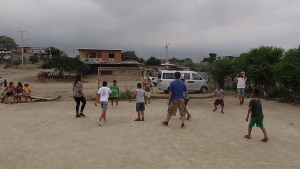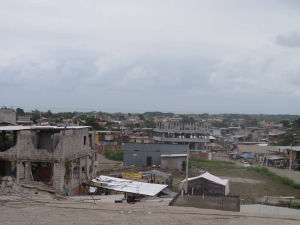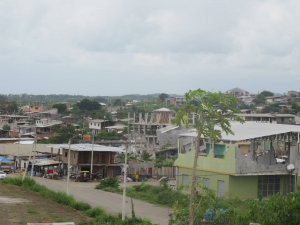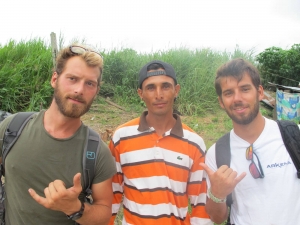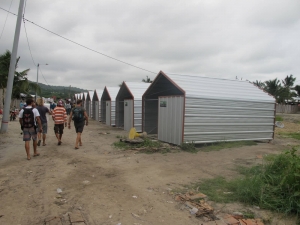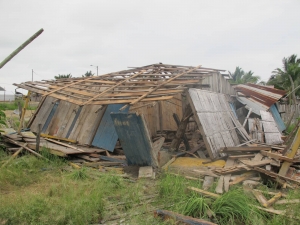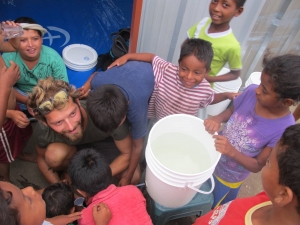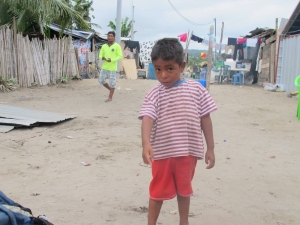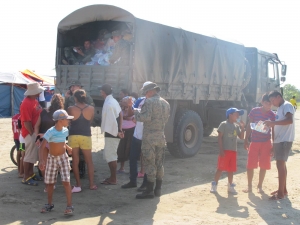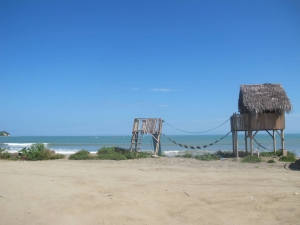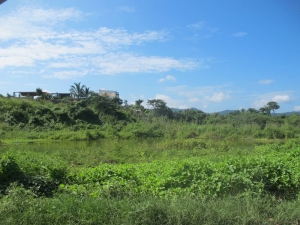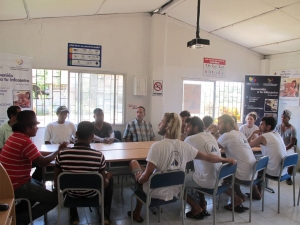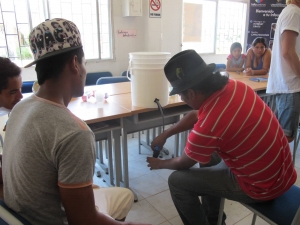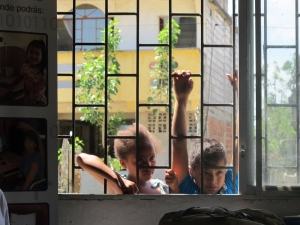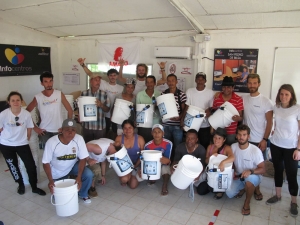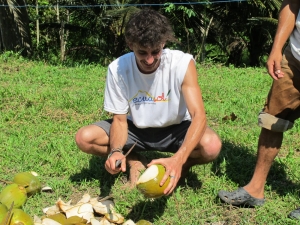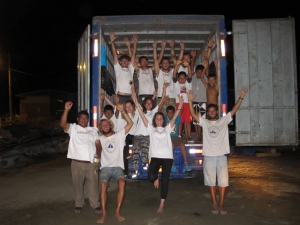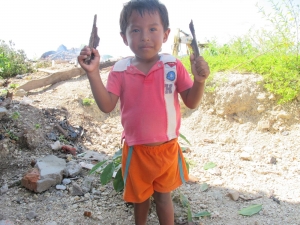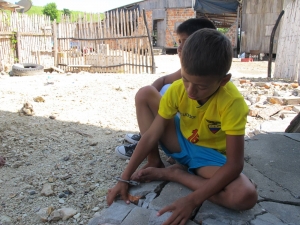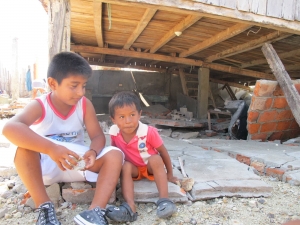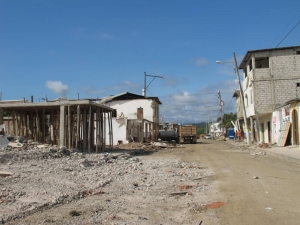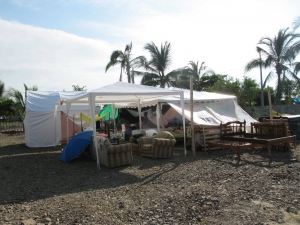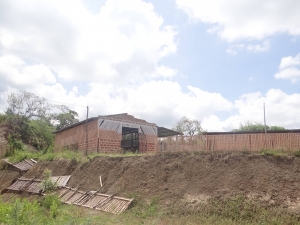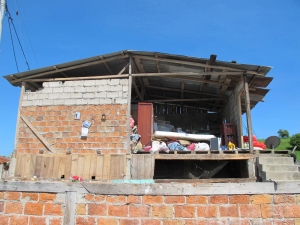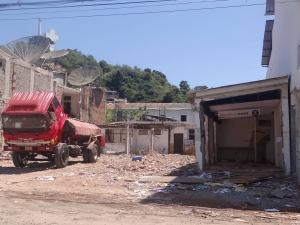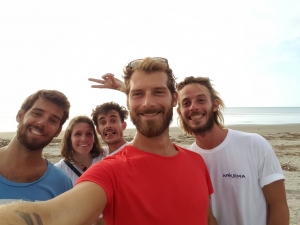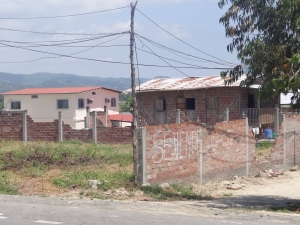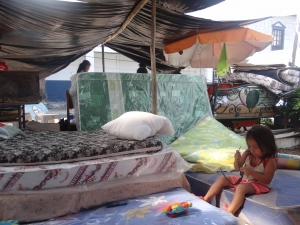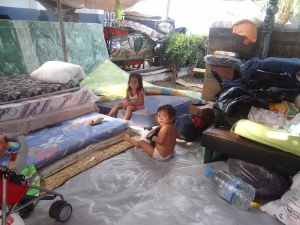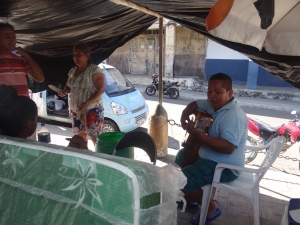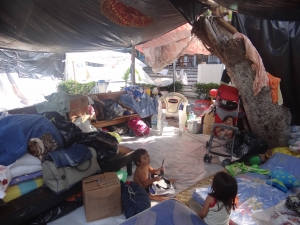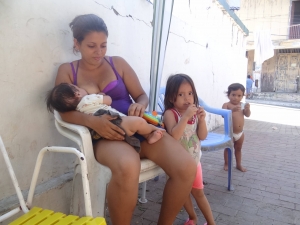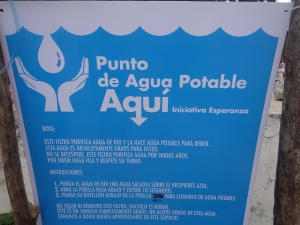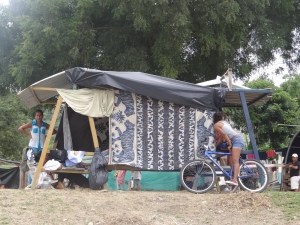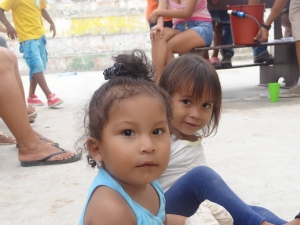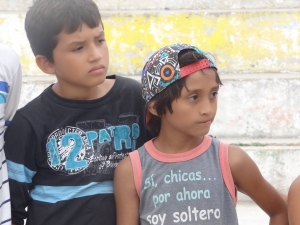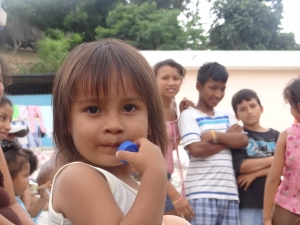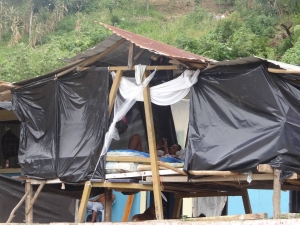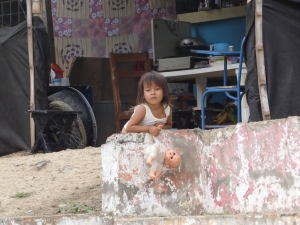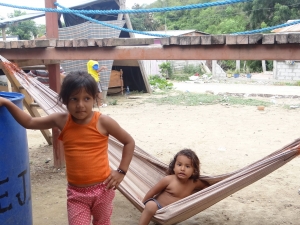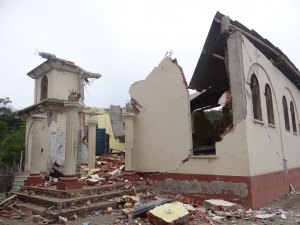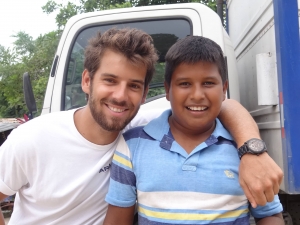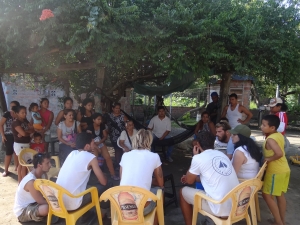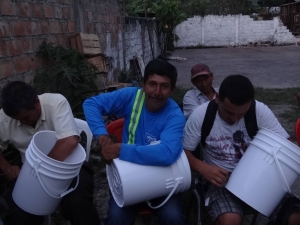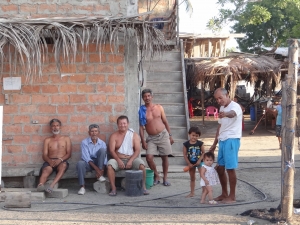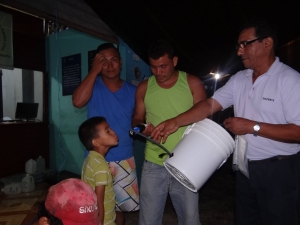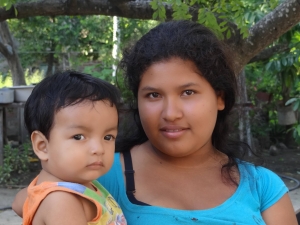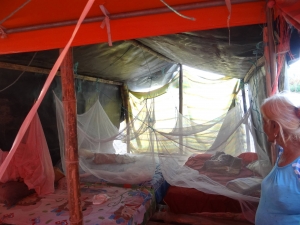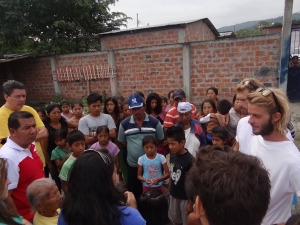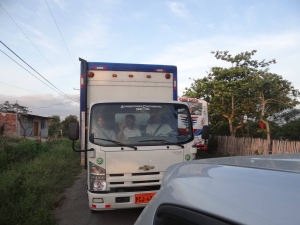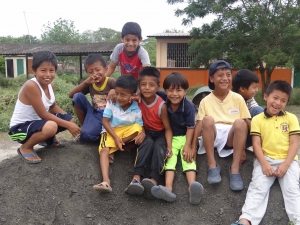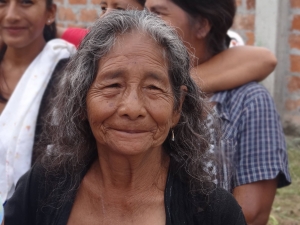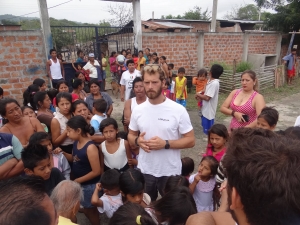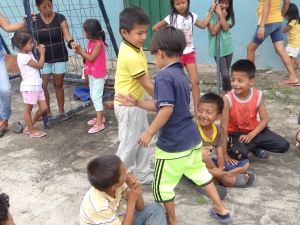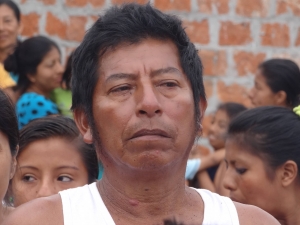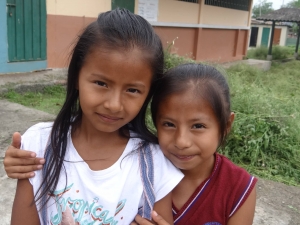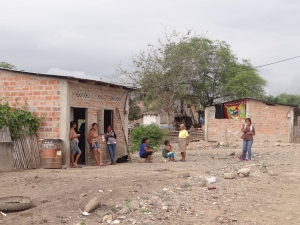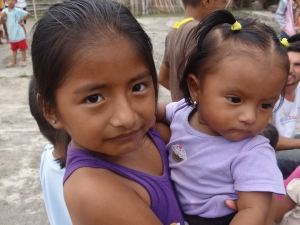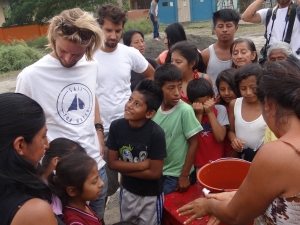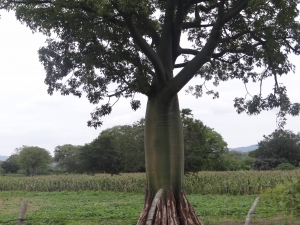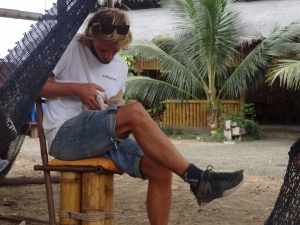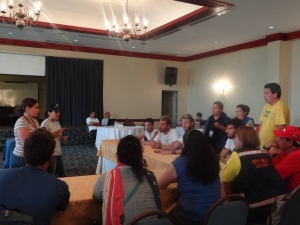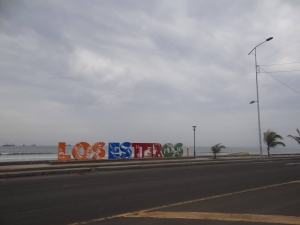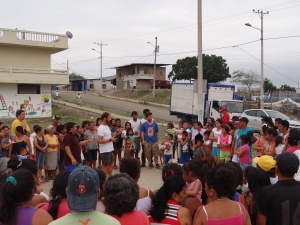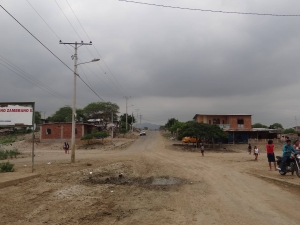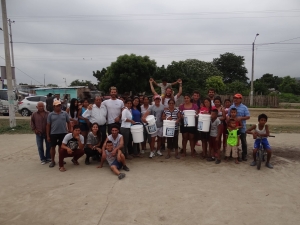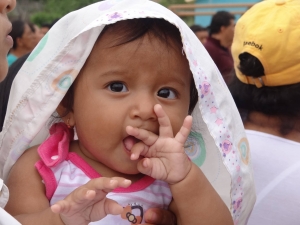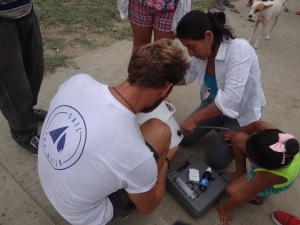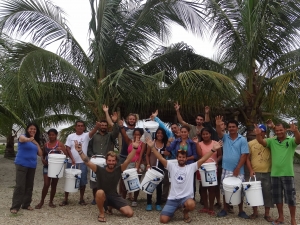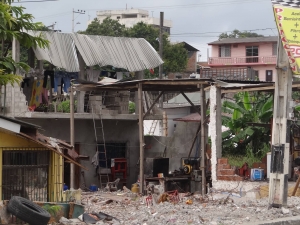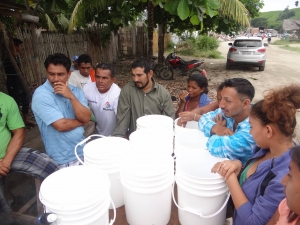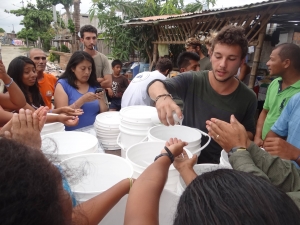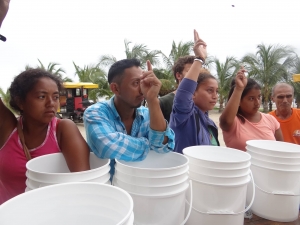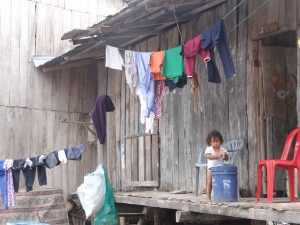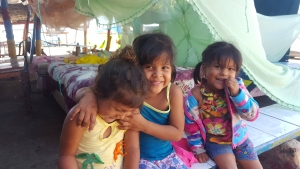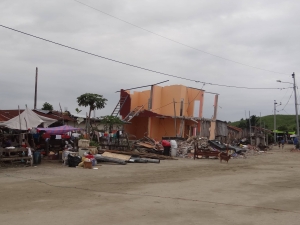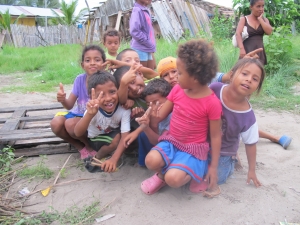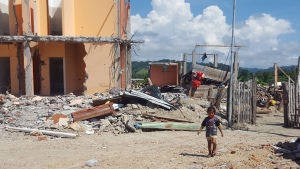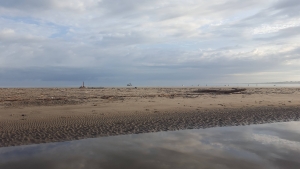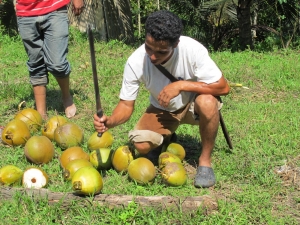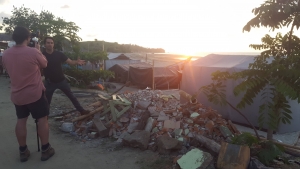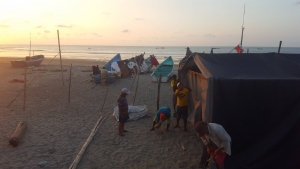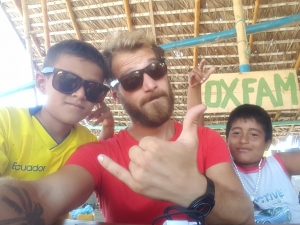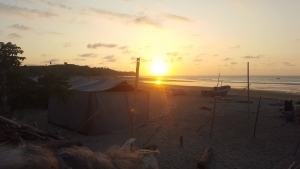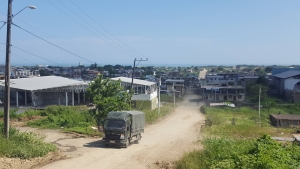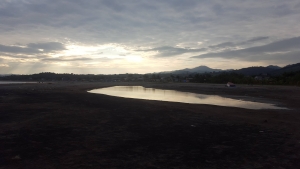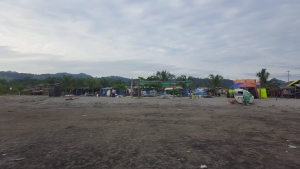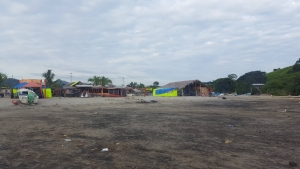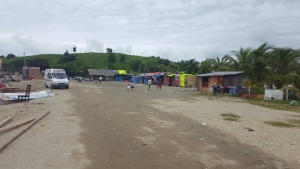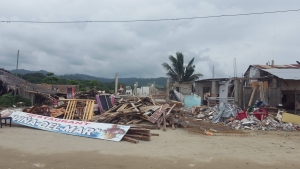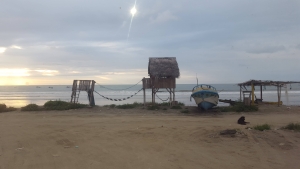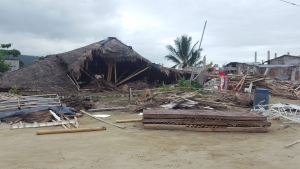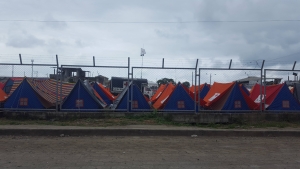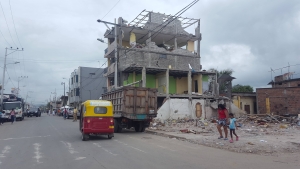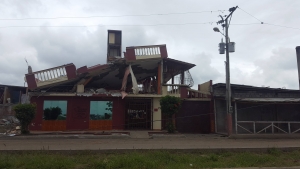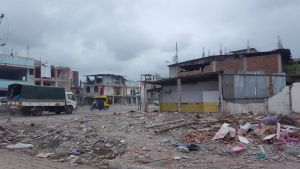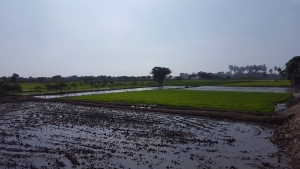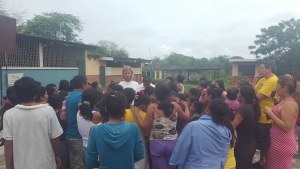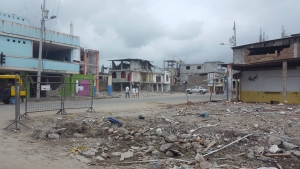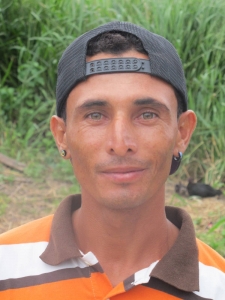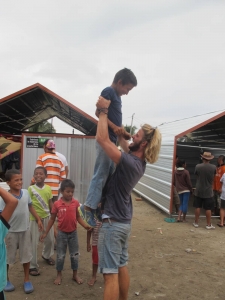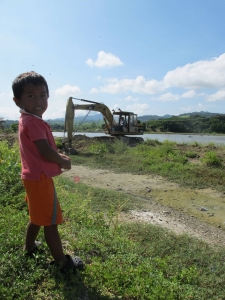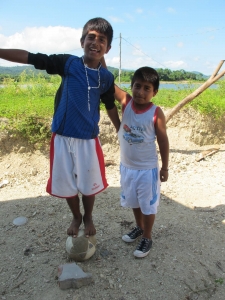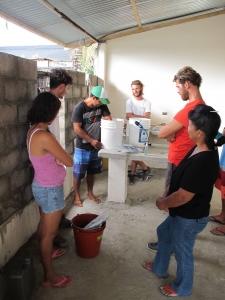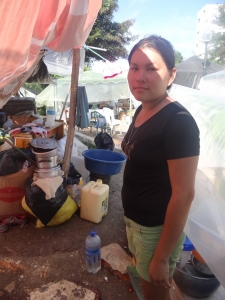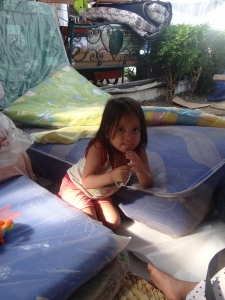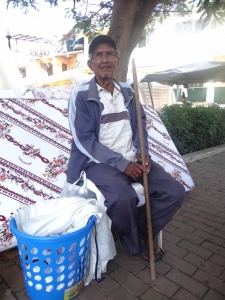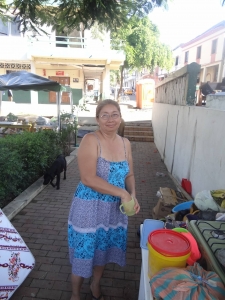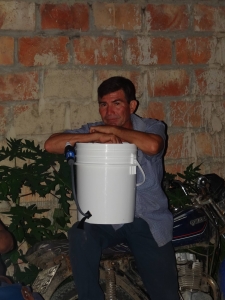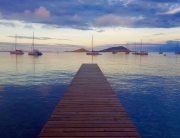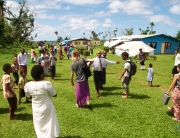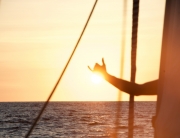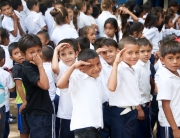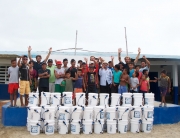
Ecuador – Emergency Mission!
On April 16th 2016, at 6:58pm local time, a 7.8 magnitude earthquake hit off the coast of Muisne, a coastal city in the north west of Ecuador. Earthquakes of that importance are extremely rare and their destruction power is largely above those of the nuclear bombs that hit Hiroshima and Nagasaki during World War 2. In Ecuador, this was the worst tragedy in over 40 years. There had been more than 1,500 aftershocks in the weeks following the “Terremoto” (earthquake in spanish), including 2 major ones on may 13th (6.7 and 6.8 on the Richter scale). The disaster killed 673 people and the material damages were inconsiderable.
The day before that terrible event, we had just left our families and wives that came to visit us in Panama. Back on the boat, at a mooring next to the Panama canal’s exit, we tried for the last time to contact an Ecuadorian NGO in order to organise our distribution mission that was planned. With the absence of answer, we started to think about directly crossing the immensity of the Pacific Ocean without passing through Ecuador.
Just then, in the evening of April 16th, we receive an alert informing us of the risks of tsunamis caused by terrible earthquake that hit the north west of Ecuador just a few minutes earlier. This was the announcement of a stressful night. However, the complete absence of reaction outside of the Panama canal, where transit everyday several dozens huge freighter, was reassuring us a little. The alert would be lifted during the night. No more hesitation, we have to go as fast as possible to Ecuador in order to help people who most likely lost everything they had. The NGO called Ecuasol, silent until then, answered immediately and a common action took form. Ecuasol, a French and Ecuadorian NGO is normally focused on youth problems in Quito. However the urgency of the situation calls for full mobilization, and Ecuasol did everything in its power to allow us to go distribute filters in the most isolated and destroyed places, as fast as we could. Places that were cut from national and international help. The French Embassy in Ecuador also contacted us in order to coordinate the actions of the the NGO’s on site. This was not the first natural hazard, and unfortunately won’t be the last one. The big NGO’s know this. We were in the middle of a terrible mess, but had a role to play.
On April 21st, after a few intense days preparing the mission, as well as the transpacific that would follow, we sailed Esmeraldas, in the north of the country. We arrived on April 25th, after a few days of complicated navigation in an awful area. The doldrums, inter-tropical zone of convergence. In this place, nothing makes sense, the wind, the sea and the sky are fighting a war of illogicality. Because we had no time to lose in this mess, we crossed this area with the engines. Let’s note our first encounter with a hammerhead shark who was loitering around the boat during a very calm morning.
Let’s also note, the boarding of the colombian marine police, who appearing from nowhere, came on the boat to search it. When they saw the 75 buckets piled in the back cabin, the two police officers really believed in the seizure of the year. Unfortunately for them, it was only the buckets needed to install the filters.
On the evening of April 25th, we arrived at Esmeraldas, next to the Colombian border. No marina or anchorage, just a shabby fishermen harbor. On the face of it, it seems that there was not that much damage here, although the epicenter was barely at several hundreds kilometers. The police explained us it was dangerous to leave the boat unattended. We are not really surprised and decide to go more south to Bahía de Caráquez, where there is a small marina sheltered and safe. The marina is destroyed but still working properly. In the meantime, we met the 4 members of Ecuasol, Paola, the director, as well as 3 young volunteers. A fine team. The first with whom we will share this mission.
As weird as it can look like, especially in such circumstances, the Ecuadorian state wanted to keep an absolute power on all the humanitarian items entering the country in the emergency situation that followed the earthquake. In our case, if we did declare the filters, we would have had to give them to the border police that would have been supposed to distribute them afterwards to a local associations which would have given them to the victims.
No hesitation, we decided not to go through this way, and enter the filters clandestinely in the country. We quickly organise our convoy and a few hours after sunset, we discretely unloaded the 75 buckets and 100 filters from the boat, before storing them in a trick that Ecuasol rented for the mission.
On the 27th, we left Esmeraldas for Bahía de Caráquez. Everything will start there. The city was hit hard.
During this 20h navigation, we crossed the famous imaginary line, the equator line which divides the planet into 2 hemispheres. Big moment in the life of a sailor.
Nicolas who was on shift at 6am woke up the entire crew with a good bottle of red wine and a saucisson to celebrate this short, but magical moment.
From this point on, everything happened really quickly, and the numerous distributions will follow with lingering. The earthquake happened more than 10 days ago, the toll of damages is getting worse every hour despite all the help deployed in the country. Just setting foot on the ground, the urgency mission starts. The objective is to go where other can’t or won’t go, in order to help those that are being let down because of the concentration of help in certain areas considered “more important”, such as the big cities. Assisted by the Ecuasol team, Thomas has lead the first two missions in the communities of Bellavista and Parroquia San Isirdo. In the meantime, Romain and Nicolas have as a mission to put the boat to safety in the big estuary of Bahía. In 15 days, people already had time to clean up a little. Many houses collapsed, sinistered families do what they can to survive. Tents, huts and makeshift shelters are installed, and life is organized. The moral strength of these Ecuadorians touches us deeply. They have lost everything. Their houses, their jobs, and even members of their families. Despite that, they do not give up and keep fighting with a big smile. It is the beginning of a great life lesson.
Later on, we sail south, to the city of Manta. Although far for the epicenter, this big city known for its tuna fishing was not spared. This is where there was the most victims. We are welcomed by Nelson and his wife, who will be our hosts for the next 2 days, and will guide us towards some of the most isolated communities in the world. Because of all the rubble and the holes in the road, the truck cannot go quickly.
The countryside is magnificent, an interrupted and shiny green is dominating. In the middle of this rich and powerful nature, we witness a succession of ripped open and destroyed house. Hundreds of people walk on the side of the road, begging for food and water to any vehicle passing by. Usually it is the children who attract the attention of cars by waving a red or white piece of clothing. In Manta, we are joining the center of humanitarian help, where everything is supposed to be organized and centralized. Once there we ask for directions and information concerning who to talk to. But on the same grounds as the border officers, people tell us to give them the filters and let them do. What a waste of time. We will do without them, and will do better than them. Nelson guides us towards communities that are deeply isolated and terribly alone, left to manage this challenging situation on their own. We are the first to go there. A few militaries, sometimes bring water and a little bit of food, the the convoys are few and will soon stop.
After Manta, we go back north, still following the coast that was the most hit. Our next stop is Pedernales, the city that is crossed by the imaginary line: « La Ciudad a la Mitad del Mundo ». You probably heard about it in the news. The city was simply wiped off the map. What we see there is desolating. Here, 15 days were not enough to remove all the wreckage. Streets are hardly passable, and in some places dust hides the sky. Everything is destroyed. A lonely wall on the left, what’s left of a building on the right. Pedernales was a highly touristic city in Ecuador. However, today the city looks empty, dead. Many inhabitants left the ruins of their old lives behind. The main activity of city is done by the numerous NGO’s concentrated in Pedernales. We are targeting a small community, La Chorrera, composed of approximately 1000 families whom were initially living on the border of a majestuous beach. Now the many temporary shelters built on the beach are composing the new landscape. Everything else has been destroyed. Those people lost absolutely everything, there is nothing left. At least nothing that looks done.
Despite their situation, those people have welcomed us with an undescriptible warmth, thing we haven’t felt since we left France. The life lesson goes on. “I lost my house and my restaurant, but my family is safe and sound, and so am I. That’s the most important. We cannot resurrect deads. All the rest is only material and can be built again”. Little by little, life resumes its normality. The fear of aftershocks is constant and people know that their temporary shelters would not hold another shock, but they have to go on, they have to keep living. The smiles, laughs, generosity and kindness are soothing the atmosphere and illuminating the landscape.
At every presentation that we make, people are really attentive, they miss nothing and we do not need to repeat ourselves. Things go so quickly. In a week we would have crossed most of the country, met dozens of different communities and distributed more than 100 filters. We would have loved to distribute more though !
On La Chorrera’s small road, we stumbled, by chance, on Jordan Tappis, a representative of Waves for Water, the American NGO who has inspired us so much, and helped all along, from the preparation of the journey until now. This meeting was as unpredictable as it was pleasant. We hope to carry out a mission with them one day. Back to Bahía, we just have to find the items that will fill the holds of the boat in order to fight the big southern sea, that awaits us with many surprises, the Pacific Ocean. Departure for the big transit on May 11th, with the tide.
Our journey in Ecuador, as intense as it was quick, will stay engraved in ourselves as a great and beautiful lesson of life, humanity and generosity. The people we have met, gave us probably more than we gave them. Happiness is born from the simple fact of living. We might not realize it when death steals many and comes close, as those ecuadorians probably felt it on the evening of April 16th 2016, but this is the lesson that we have learnt from these people.

